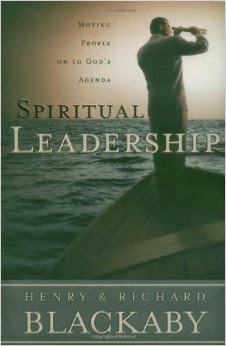Wednesday, November 25, 2009
How to interpret the Bible - Hermeneutic
Tuesday, November 3, 2009
Friday, October 30, 2009
How to interpret the Bible - Hermeneutic

Click on here to get a larger image. Great overview tool on the books of the Bible
Component 2: Grammar
Having considered the nature of specific genre, we now look at grammatical analysis. What is grammar? Grammar is the system of a language. It is the “rules” applied to how words are put together. The irony is of course no language has rules, except for the language “Esperanto”, which is an invented language. It was created to serve as a universal second language to foster peace and international understanding. If we use the word "rules", like programming rules, somebody has to create the rules of programming before we can program. In the same way, it may sound like somebody created a rule of language and then starts to speak the language and make meaning out of it. But we know languages started by people making sounds which then later evolved in to words, phrases and sentences. No commonly-spoken language is ever fixed in concrete. All languages change over time and a great example of it is English itself which borrowed many words from different languages. What we call "grammar" is simply a reflection of a language at a particular time and this is an important part of interpreting the Bible according to the original intention of the writer.
We don’t have to study grammar to learn a language. When we were young, we started speaking even before we learnt that there is such thing call grammar. Of course, we learnt by modelling after what we heard and read. That’s why Malaysian English can only be understood fully by another Malaysian. Attached at the end of this post is a great joke about Singlish. Have a good laugh! But if we are serious about learning a foreign language, then grammar can help us learn a language more quickly and more efficiently. Grammar is a help tool to understand a language better. Once you mastered it, you can comprehend many things without consulting anyone.
It is logical therefore in bible hermeneutics to examine grammar properly since it is inherently more consistent than the remaining elements of the interpretive process. The way a sentence is structured does not change. Subjects, verbs, objects, and modifiers are the tools of communication. But it is important to note that even if you know how a word functions in a given sentence, it does not by itself give you the meaning of the passage. Often the grammar is like a signpost or a map that points you to or provides insight into the meaning of the text. For e.g. the word “saved” does not only refers to spiritual salvation but it could mean one being physical healed or delivered from a dangerous situation.
Words also evolve over time. What it means at one time may mean another at a different time. Consider the word “gay”. Earlier, it means “happy” or “cheery”. Now it also means someone who is a homosexual. What diverse meanings! Therefore word studies help the interpreter to trace the development of a word from its beginnings to the time period of the particular writing under consideration. So in interpreting, one must consider the period from which it is written and from there what the author actually meant within the context and grammar. Another example, whenever you hear the phrase “You are God’s temple” from the Scripture, the ‘you’ is always plural. The implication is vast because it points to the importance of the congregational life of the church and not merely an individualistic faith.
“Be filled with the Spirit” has a continuous tense, which if rightly translated would mean, keep on being filled, which suggest a far more different meaning than just a one time filling. What this means is that grammatical analysis also covers grammatical structure which deals with arrangement of terms within a given passage of Scripture which will reveal a relationship of words that shows purpose, result, time, concession, means, manner, condition, comparison, and contrast are indicated by adverbs and adjectives. Phrases and clauses will also indicate these relationships.
I was told DUMC is a church where good English is spoken during preaching. What I think this means is that people appreciate the fact that grammar is used well (I hope). :) We don’t usually think about grammar although it is used everyday. We are not conscious of grammatical analysis although our brains interpret the meaning of the sentences we hear at lightning speed. But to a foreign or earlier language at a different time, grammatical analysis is crucial to the hermeneutical process. While we take care to understand each word, phrase, or clause, the ultimate purpose is to understand the Author (God) or author's intended meaning. We fit the jigsaw puzzle pieces until the full picture is seen. Grammar will not solve everything but it will certainly help us converge to the possibilities. There are a few different words for “love” in Greek. Which one does it mean? Agape, phileo, storge or eros? In getting the answer firstly to the meaning of an individual word would lead to the understanding of the sentence and hence the passage.
Singlish Joke:
The English did invent the English Language, but they cannot use it effectively (as few words as possible) when communicating their intentions.
Just compare these few phrases that Singaporeans and Britons use to say the same thing:
Returning a Call...
Britons: Hello, this is John Travolta. Did anyone page me a few
moments ago?
S'poreans: Hallo! Who page?
When someone is in the way...
Britons: Excuse me, I'd like to get by. Would you please make way?
Singaporeans: S kews !
When someone offers to pay...
Britons: Hey, put your wallet away, this drink is on me.
Singaporeans: No nid.
When asking for permission...
Britons: Excuse me, but do you think it would be possible for me to
enter through this door?
Singaporeans: (while pointing at door) Can or not?
When asking to be excused...
Britons: If you would excuse me for a moment, I have to go to the gents/ladies. Please carry on without me, it would only take a moment.
Singaporeans: Toy lert, toy lert.
When entertaining...
Britons: Please make yourself right at home.
Singaporeans: Don't shy, leh!
When doubting someone...
Britons: I don't recall you giving me the money.
Singaporeans: Where got?
When declining an offer...
Britons: I'd prefer not to do that, if you don't mind.
Singaporeans: Doe waaaan.
When deciding on a plan of action...
Britons: What do you propose we do now that the movie's sold out and all the restaurants are closed?
Singaporeans: So how?
When disagreeing on a topic of discussion...
Britons: Err. Tom, I have to stop you there. I understand where you're coming from, but I really have to disagree with what you said about.....
Singaporeans: You mad, ha?
Entertaining customer....
Britons: I'm sorry, Sir, but we don't seem to have the sweater you want in your size, but if you give me a moment, I can call the other outlets for you.
S'poreans: No Stock!
When asking someone to lower their voice...
Britons: Excuse me, but could you please lower your voice, I'm trying to concentrate over here.
Singaporeans: OOei! Shaddap !!
When asking someone if he/she knows you...
Britons: Excuse me, but I noticed you staring at me for some time. Do I know you?
Singaporeans: See what see?
Friday, October 9, 2009
Journalling Chain

Tuesday, October 6, 2009
How to interpret the Bible - Hermeneutic
Saturday, October 3, 2009
2 Timothy 1 - I know whom I have believed
2 Timothy 1:12-14 (NIV)
Thursday, October 1, 2009
1 Tim 6:20-21 - The threat of Gnosticism
1 Timothy 6:20-21 (NIV)
What are these opposing ideas called knowledge? This was addressed extensively in the letters of Apostle John. John's readers were confronted with an early form of Gnosticism and here Paul warned Timothy about this. So what is Gnosticism?
This is one of the most dangerous heresies of the early church in the first two centuries. In a nutshell, it teaches an unbiblical dualism that says anything spirit in nature is entirely good and matter is entirely evil. The truth is, we are to hold things spiritual and material both in a right and biblical manner. Paul said God "richly provides us with everything for our enjoyment." (1 Tim 6:17d) Without trying to spiritualise everything, Paul is talking about material things as well that God has provided for our enjoyment and they are not evil in themselves. For e.g. money is a neutral tool, but the love of it is sin when it leads to covetousness and greed, and some have wandered from the faith. (1 Tim 6:10) 1 Tim 6 is worthwhile reading for those who are wealthy. There are great wealth stewardship teaching there!
Coming back to Gnosticism. False teachings arise when truth is taken to mean something else. Let me sum up for you in a simple way the major errors of Gnosticism:
- Spirit is good and matter evil. Therefore man's body is evil. While we agree that we constantly fight with our flesh (Romans 7:7-25), we can through this body be used for good. There is no necessity to have this dualism that pit one against the other. If this body is evil, why then do we need to take care of it. Do you see where this is heading if I continue along this logic. See point 4 & 5.
- Salvation is not through faith in Christ but by an escape from the body through special knowledge (that's what Paul warned Timothy about). The Greek word for knowledge is "gnosis", hence Gnosticism.
- Christ's humanity is denied. If we hold the doctrines of Christ in a biblical way, we know our Lord is fully God and fully human. Therefore we use terms like the "Deity of Christ" and the "Humanity of Christ". He is not half man, half God. He is fully man and fully God. Same concept with Trinity, God fully Father, fully Son and fully Spirit, but yet one God. Gnosticism took this and suggest two ways of looking at the deity and humanity of Christ. (1) Christ only seemed to have a body, that means it is in some sense a virtual body (this is called Docetism, from the Greek dokeo "to seem") (2) Christ was joined with this man called Jesus at baptism and left him before he died (this is called Cerinthianism, after a man called Cerinthus.). Cerinthianism was the main view of the day to the readers Apostle John was addressing.
- Since the body is evil, it needs to be treated harshly. This leads to asceticism that Paul addressed to the Colossians (2:21-23). This leads to the denying of the regeneration of our spirit that can lead to the proper use and place of our human body for the glory of God.
- On the other hand, this dualism can also lead to licentiousness (meaning, unrestrained indulgence in sexual pleasure.) Since our body is evil and our spirit good, it doesn't matter what we do to our bodies and there will be no moral consequence. You see how deceptive this can be where we can be sitting in church worshipping God and yet indulging in all kind of sexual sins and immoral behaviors and conducts the other 6 days of the week.
Tuesday, September 29, 2009
1 Timothy - Some thoughts
Friday, September 25, 2009
Micah 6:8 The Micah Mandate
And what does the LORD require of you?
To act justly and to love mercy
and to walk humbly with your God.
Romans 1:18-20 (NIV)
Although I am less than the least of all God's people, this grace was given me: to preach to the Gentiles the unsearchable riches of Christ, 9and to make plain to everyone the administration of this mystery, which for ages past was kept hidden in God, who created all things.





























